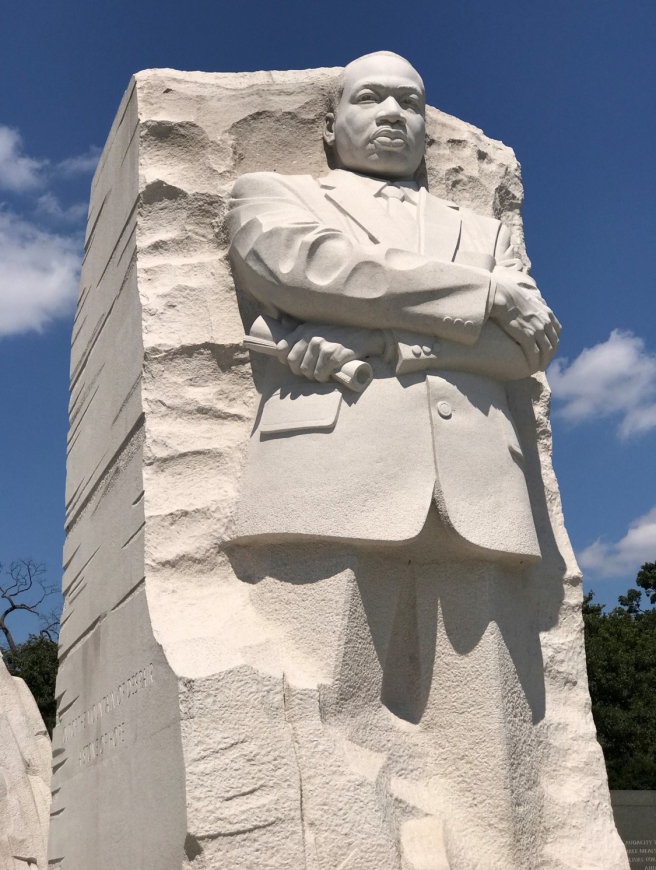 Today we celebrate Martin Luther King, Jr. Day in America. We mark it under a racial cloud because of what our president said recently about African and Caribbean nations. “Shithole/Shithouse nations” according to our, at best, racially obtuse president, and at worst, racist president.
Today we celebrate Martin Luther King, Jr. Day in America. We mark it under a racial cloud because of what our president said recently about African and Caribbean nations. “Shithole/Shithouse nations” according to our, at best, racially obtuse president, and at worst, racist president.
Solomon Northup, in Twelve Years a Slave, wrote, “There’s a sin, a fearful sin, resting on this nation, that will not go unpunished forever. There will be a reckoning yet… it may be sooner or it may be later, but it’s coming as sure as the Lord is just.”
Northup wrote that in 1853, eight years before the outbreak of the American Civil War, 10 years before the Emancipation Proclamation, 12 years before the ratification of the 13th Amendment, 76 years before Martin Luther King, Jr.’s birth, 111 years before the Civil Rights Act of 1964, and 115 years before King’s murder. And today, 50 years after King’s assassination and 165 years after Northup’s account, we are still paying the price of what President Obama termed “America’s original sin.”
There are epochs in history, categories into which we place significant events. We may consider ancient history to encompass the construction of the great pyramids or the rise and fall of Rome. And we may believe the American Civil War to be “ancient” within the framework of the United States’ existence. Too quickly we relegate events to history and therefore outside an era upon which our brains must examine events contemporaneously. If we think of an event as being “history,” we can, to a certain extent, dismiss it as being old and no longer relevant.
Consider this, then: Martin Luther King, Jr. would have been 89 years old today. Conceivably still living, had he not been murdered in 1968. His contemporaries, those also born in 1929 and still among us include journalist Barbara Walters, actor Christopher Plummer, actor/comedian Bob Newhart, actor Ed Asner, author Eric Carle, and actor Max von Sydow. Dr. King was only 39 years old when he was murdered. This April 4th will mark 50 years since his slaying. By 2008, King had been dead longer than he had ever lived. Imagine what he might have achieved, where we might have been as a nation concerning race relations, had he lived these past 50 years.
Martin Luther King, Jr. is not the monument in the photo above that I captured in Washington, D.C. last summer touring the city with my children. Do not let the black and white pictures you have seen or grainy, less than 1080p online video fool you. He is a contemporary man who was trying to make the world a better place, not an ancient figure no longer relevant. He words still give rise to voices now because we still have work to do.
Perhaps the rise of nationalism and xenophobic tendencies we see, not only in America (Trump) but all around the globe, is cyclical. At its worst, we devolve into world wars. I hope that what we see today is a venting, a voice being periodically given to those otherwise so staggeringly ignorant we usually must drag them kicking and screaming toward a better future for all creatures living on this small blue dot careening through the universe. I hope that this is only a venting and authoritarian plutocracies do not get a foothold. I hope that we will again celebrate President Kennedy’s (via Ted Sorensen) aphorism “a rising tide lifts all boats” and we are not moving toward a future resembling 1853 or some other cataclysmic date in our collective “ancient” history.

